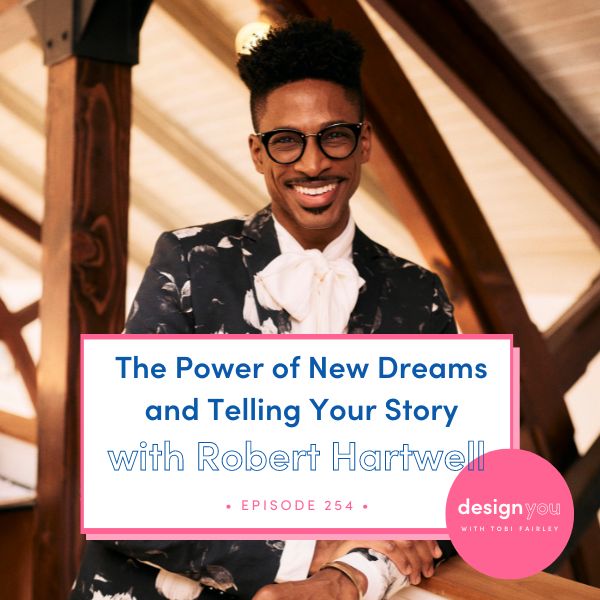
My guest this week knows a thing or two about dreams. His first dream began on Broadway, where he worked successfully as a performer, director, and choreographer. He’s fulfilling his dream of buying and renovating a house. Now, he’s living another dream of helping people show up, dream big, tell their authentic story, and speak their truth out in the world.
Robert Hartwell is the CEO of Strength on Stages where he coaches entrepreneurs, founders, and venture capitalists on the art of authentic storytelling and selling from the stage. He’s here to show us how to live into multiple dreams in every area of our lives.
Tune in this week to discover why, as creatives, it always serves us to show up authentically. We’re discussing why intention and authenticity take time, why selling from the stage doesn’t have to be a hard pitch, why nobody wants to hear you trying to please everyone, and how to start using your voice to find the people who need to be in your orbit.





